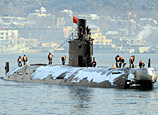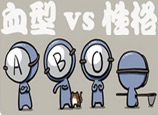
BEIJING, Jan. 15 (Xinhua) -- China's stepped-up urbanization should benefit agricultural modernization, and the two will complement each other, Vice Premier Li Keqiang said Tuesday.
Urbanization will promise the largest potential for domestic demand, while agricultural modernization is an essential foundation of, and crucial support for, all economic and social growth, Li said.
He made the remarks while chairing a meeting at the Academy of State Administration of Grain (ASAG) after visiting the academy's grain storage laboratory and food safety laboratory.
"China's reforms commenced from the countryside about 30 years ago. We will still rely on reforms and innovation to keep and manage 'the country's granaries' and promote the 'new four modernizations,'" Li said.
The "new four modernizations" are industrialization, informatization, urbanization and agricultural modernization.
China first put forward the term "four modernizations" in the early 1960s, targeting the fields of industry, agriculture, national defense and science and technology.
Any solution to agricultural and grain problems should be based on the big picture, Li stressed.
Urbanization should highlight efforts to urbanize people, namely integrating farmers into towns, instead of just willfully building towns, Li said.
China's grain demand-supply relationship is in a tight balance and it has not been changed, as grain harvests are largely determined by climate, Li said.
In the future, grain consumption will continue to rise. No one can shoulder the burden of feeding more than 1 billion people and "we can only rely on ourselves," Li said.
Global grain prices have been running high and will continue to do so in the future, and China's agricultural foundation, especially its grain foundation, should not relax, Li said.
The Chinese Academy of Social Sciences on Tuesday released the Annual Report on China's Urban-Rural Integration 2012. It says a great amount of rural labor forces are moving to cities, and an inadequate labor force is gradually becoming a key factor hampering the country's grain output.
Official figures show that China's grain output in 2012 rose 3.2 percent year on year to 589.57 million tonnes. However, the country faces a tightening grain supply amid increasing demand driven by population growth.
At a rural work conference in December, Minister of Agriculture Han Changfu said China has increased its imports of farm produce to meet domestic needs, and the country plans to encourage more industrial and commercial enterprises to invest in the agriculture sector.
















 Sichuan gets its first sperm bank
Sichuan gets its first sperm bank


![]()
